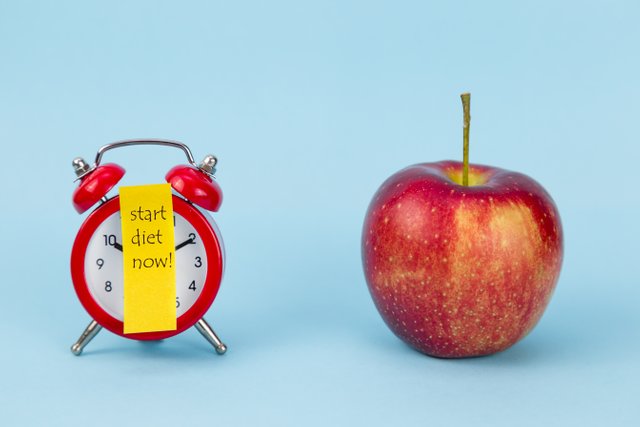What Are the Benefits of Apple?

Apples Are Nutritious
A medium apple is equivalent to about 1.5 cups of fruit. It is recommended that an individual who is fed with 2000 calories a day should eat 1 glass of fruit daily. A medium apple has nutritional values as follows;
Recommended Daily Intake = RDI
Calories: 95
Carbs: 25 grams
Fiber: 4 grams
Vitamin C: 14% of the RDI
Potassium: 6% of the RDI
Vitamin K: 5% of the RDI
What's more, the same serving provides 2-4% of your daily requirement for manganese, copper and vitamins A, E, B1, B2 and B6.
Apples are also a rich source of polyphenols. Although nutrition labels do not list these plant compounds, they are likely responsible for most of their health benefits.
May Help with Weight Loss
Apples are high in fiber and water. Apple is also a fruit that makes you feel full. One study proved that people who ate apples before a meal felt more full than those who did not consume applesauce, apple juice, or no apple products. The same study showed that those who started their meal by eating an apple slice consumed 200 calories less food after the meal.
Also, some compounds found in apples may promote weight loss. A study in obese mice found that those given a ground apple and apple juice concentrate supplement lost more weight and had lower levels of "bad" LDL cholesterol, triglycerides, and total cholesterol than the control group.
Apples May Be Good For Your Heart Health
Apples have been associated with a lower risk of heart disease. One reason may be that apples contain soluble fiber, the kind that can help lower your blood cholesterol levels. They also contain polyphenols with antioxidant effects. Most of them are concentrated in the crust.
Another study comparing the effects of eating an apple a day with taking statins, a class of drugs known to lower cholesterol, concluded that apples would be almost as effective as drugs in reducing deaths from heart disease.
Linked to Lower Diabetes Risk
In one large study, eating an apple a day was linked to a 28% lower risk of type 2 diabetes compared to eating no apples at all. Even eating just a few apples a week has a similarly protective effect.
It's possible that the polyphenols in apples help prevent tissue damage to the beta cells in your pancreas. Beta cells produce insulin in your body and are often damaged in people with type 2 diabetes. It helps in repairing.
May Have Prebiotic Effects
Apples contain pectin, a type of fiber that acts as a prebiotic. This means it feeds the good bacteria in your gut. Your small intestine does not absorb fiber during digestion. Instead, it goes to your colon, where it can promote the growth of good bacteria. It also turns into other beneficial compounds circulating in your body. New research suggests that this may be the reason behind some of the protective effects of apples against obesity, type 2 diabetes and heart disease.
May Help Prevent Cancer
Test-tube studies have shown a link between plant compounds in apples and a lower risk of cancer. Additionally, a study in women reported that eating apples was linked to lower death rates from cancer.
They Can Help Fight Asthma
Antioxidant-rich apples can help protect your lungs from oxidative damage.
A large study of over 68,000 women found that those who ate the most apples had the lowest risk of asthma. Eating about 15% apples a day was linked to a 10% lower risk for this condition.
Apple peel contains the flavonoid quercetin, which may help regulate the immune system and reduce inflammation. These can help prevent asthma and allergic reactions.
May be Good for Your Bone Health
Eating fruit is linked to higher bone density, an indicator of bone health. Researchers believe the antioxidant and anti-inflammatory compounds in the fruit may help increase bone density and strength. Some studies show that apples, in particular, can have a positive effect on bone health.
Apples May Protect Against Stomach Injuries
Some medicines can damage your stomach lining. As a result of a study, it was found that apple extract protects against stomach injuries.
Apples May Help Protect Your Brain
Most research focuses on apple skin and flesh. Apple juice may benefit age-related memory difficulties. Apple juice may help preserve acetylcholine, a neurotransmitter that may decrease with age. Low acetylcholine levels are linked to Alzheimer's disease. However, all apples contain the same compounds as apple juice. For your health, it is always a healthier choice to consume your fruit as a whole. When you consume a whole fruit, you can get fiber, fiber, water and all the health benefits at the same time.
Thats pretty cool! I made a video on the history of apples